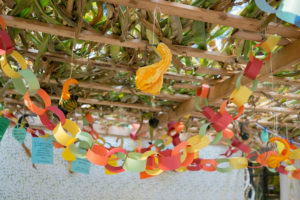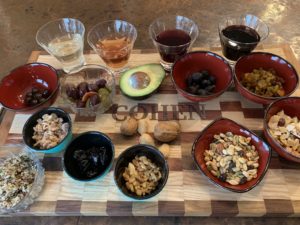Shavuot: “We Are One Person, One Heart”
Yom Hazikaron and Yom Ha’atzmaut, Remembering the Fallen Soldiers…Celebrating the Future
Why does Israel’s Memorial Day and Independence Day occur back to back on the Jewish calendar? Because, first we remember…then we celebrate. To find out how YOU can play an active role in these two holidays starting tomorrow, brew a cup of cherry blossom tea and READ ON. Continue reading
Another Passover In A Pandemic—It’s A Wrap—Dayenu
As the second Passover pandemic nears the end, and the last box of matzo is whittled down to crumbs, I’ wrote a year-in-review parody of “Dayneuâ€, the Hebrew name of a popular Passover song that means, “It was enough for usâ€. While we have experienced tremendous loss, some of us way more than others, we gained a lot as well, a new appreciation for living, breathing, taking care of each other, and Zoom. Dayenu reminds us to recognize that what we have is enough and to not take the miracles for granted.
So, here goes, it helps if you know the original lyrics, which can be found HERE.
PANDEMIC PASSOVER DAYENU
If He gave us Netflix
and not season three of Shtisel to binge on
Dayenu, it would have been enough
If He provided food on the table
and not offered us carryout from our favorite Thai restaurant
Dayenu, it would have been enough
If He temporarily shut down roads, airways, waters, to prevent the virus from spreading
and not rewarded us bluer skies, cleaner air, less noise and pollution, and a better environment for nature and animals
Dayenu, it would have been enough
If He filled the grocery stores with plenty of food
and not given us Shipt delivery service
Dayenu, it would have been enough
If He supplied pleated disposable masks
and not showed us how to make washable face coverings with Hanukkah menorah patterns
Dayenu, it would have been enough
If He gave us Shabbat and the Jewish holidays
and not invented the technology to join fellow congregants and community virtually, while wearing our pajamas
Dayenu, it would have been enough
If He built us temples
and not offered drive thru Shofar blowing
Dayenu, it would have been enough
If He educated our rabbis, clergy, leaders, and community organizations
and not created Zoom to keep us connected and inspired
Dayenu, it would have been enough
If He gave us rituals to guide us through life cycle events, from birth to death and every simcha in between
and not invented computers to attend a wedding, bris and shiva all on the same day
Dayenu, it would have been enough
If He provided us soap to constantly wash our hands
and not the liquid moisturizing kind in a pump that smells like jasmine
Dayenu, it would have been enough
If He gave us bleach to sterilize the door knobs, kitchen counters, and mailbox every time we touched it
and not the convenient disinfectant wipes that pull out of a canister
Dayenu, it would have been enough
If He gave us shelter
and not heat, air conditioning, and essential oil diffusers
 Dayenu, it would have been enough
If He trained doctors, nurses, and hospital workers to heal us
and not asked them to risk their own lives to save ours
Dayenu, it would have been enough
If He watched over front line heroes and first responders
and not opened our hearts to bring them pizza and show our support
Dayenu, it would have been enough
If He cried with us when we were in pain, lost, or confused
and not shown us how to do His work with compassion, empathy, and generosity
Dayneu, it would have been enough
If He made wise the scientists and pharmacists to research and development new medicines, treatments and vaccines
and not administered shots in arms around the world in record time
Dayenu, it would have been enough
If He brought forth teachers to care about their students
and not provided virtual classrooms
Dayenu, it would have been enough
If He empowered parents to juggle their careers and homeschooling
And not reopened schools before summer
Dayenu, it would have been enough
If he showed me the unconditional love of a dog
and not given me a second toy poodle to pick up poop after
Dayneu, it would have been enough
If He taught us skills to earn an income
and not shown us how to work from home
Dayenu, it would have been enough
If He gave us the hibernation of winter and the resurgence of spring
and not rainbows, yellow daffodils, purple crocus, and white blossoming pear trees
Dayenu, it would have been enough
If He blessed us with loved ones, family, friends, neighbors, community far and wide
and not kept us connected through social media while physically apart
Dayenu, it would have been enough
If He showed us generosity and kindness to strangers
and not returned the favor ten-fold
 Dayenu, it would have been enough
If He watched over people who had to close their doors during the economic shutdown
and not rallied us to support small local businesses.
 Dayenu, it would have been enough
If He believed in us
and not given us hope and miracles
Dayenu, it would have been enough
If He vaccinated me when it was my turn
And not on January 20, 2021, the day the first woman vice president was sworn in
Dayenu, it would have been enough
If He had a sense of humor
And not brought me a Shipt shopped named Moshe on Passover
Dayenyu, it would have been enough
And if you made it all the way to the bottom of this blog, thank you, here’s your afikomen (“dessert”)!
The Plague of Locusts Are Coming!
They’re baaaack! As we describe in the Passover story, locust is the eighth plague that God inflicted on the Egyptians. The Hebrew word for locust is Arbeh, which means “many”, symbolizing that the locust came in great numbers as punishment for the Egyptians trying to limit the Jews from multiplying and stopping God’s blessing of Harbeh Arbeh, “you should be fruitful and multiply.”
Matzo Symbolizes “Bread of Aflliction and Freedom”
Passover is a week long festival, and if you’re still eating matzo here’s some food for thought on this key symbol of the Passover Seder.
Passover Pandemic Gives New Meaning To Freedom
Yesterday felt like Spring, a beautiful sunny day with all the colorful flowers in bloom, and a great day for a much needed walk after cooking and cleaning.
Then as the sun began to set, the clouds rolled in, the sky grew darker, and right on cue, the rain came down, watering the bright green grass, yellow forsythia bushes, and pink magnolia tree that are the first to blossom in our yard. As we sat down to dinner, I remember last year when it thunder stormed on the first night of Passover and I was convinced God sent the plague of hail to make sure we were doing the Seder during the coronavirus pandemic, even as the patio furniture blew over. This year, a mist of rain came through the open window, and it felt soothing, refreshing, cleansing, like a new beginning.
Raise The Roof On The Symbolism of Sukkot
You shall dwell in huts (sukkot) for seven days. Every member of the Jewish people shall dwell in huts, so that your generations shall know that I had the Israelites dwell in huts when I took them out of Egypt.
Many years ago when I built my first sukkah in my own backyard, I was super excited to find a pile of freshly cut tree branches in the temple parking lot in carpool line.
It was fate. Or as we say in Hebrew, kismet. Since nobody else was claiming this tree limb treasure, I somehow managed to drag the logs like a lumberjack to my van and shove the messy branches into my newly vacuumed back seat. Little did I know these leafy sticks that I was about to lay on the roof of my sukkah had a name, s’chach  and I was doing a mitzvah. Continue reading
Counting Upward, The Spiritual Journey to Shavuot
Shavuot, a Jewish holiday that celebrates the revelation of the Torah on Mount Sinai, is around the corner but Jews have been diligently preparing for this moment since the second night of Passover.
The word Shavuot (or Shavuos) means “weeks,” and the Torah invites us on a seven-week, soul- searching journey known as Sefirat HaOmer–that’s when we count up to the days of Omer. This 49-day time period is meant to be a workout of the human psyche so that our soul is in better shape to receive the vast wisdom in the Torah that was entrusted to us by God. We count up–not down–because each day we ascend to a level higher of spiritual refinement, each day we take one step closer to becoming God’s chosen nation. Living in a Covid pandemic world right now, we are doing a lot of counting. We are counting 100,000 American lives lost to this virus that we didn’t even know existed a year ago. We count days in quarentine, days until another part of the economy reopens. During this time, more than anything,  we are reminded that  every day counts, every person counts, every act of kindness counts, every growing pain counts, and, every blessing counts.
Tu B’Shvat Feast Celebrates Israel’s Birthday of Trees
Tu B’Shvat is considered a minor holiday in the Jewish calendar, sandwiched between Hanukkah and Passover, but that doesn’t make this “New Year for the Trees†any less meaningful and fun for your family to celebrate in its fruity, nutty, earthy glory.
Sukkot Celebrates Fall Harvest…And Much More
Now that Yom Kippur is over and the hard work is done, it’s time to get ready for the next Jewish holiday, Sukkot (Hebrew word for booths or huts),  a week-long harvest festival that begins Sunday night, five days after Yom Kippur.
The festival of Sukkot is one of the three great pilgrimage festivals—the others are Passover (April 8-16) and Shavuot (May 28-30). These holidays celebrate both agricultural festivals and historical events in the history of the Jewish people, when in ancient times Jewish people traveled to the Temple in Jerusalem. In Israel, Sukkot is a major holiday, no work, no school, and everyone is outdoors sharing meals, singing songs, and giving thanks for the bounty of another season.
Also known as the Feast of Tabernacles, Sukkot is like the American holiday Thanksgiving in that we give thanks for another season of crops that will sustain us, but it is so much more. Sukkot ranks right up there in important holidays because it commemorates the time when we received the Torah at Mount Sinai, were freed from slavery, and wandered the desert for 40 years to the Promised Land. Jews today are still on a journey, and holidays like Sukkot remind us to free ourselves from the material things that often keep us in bondage. It’s a time to detach from the comforts we are accostomed to inside our houses and reconnect with the natural wonders that sustain us inside a flimsly little hut called a sukkah (singular word for Sukkot). Continue reading








